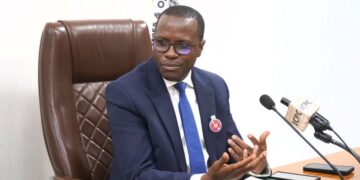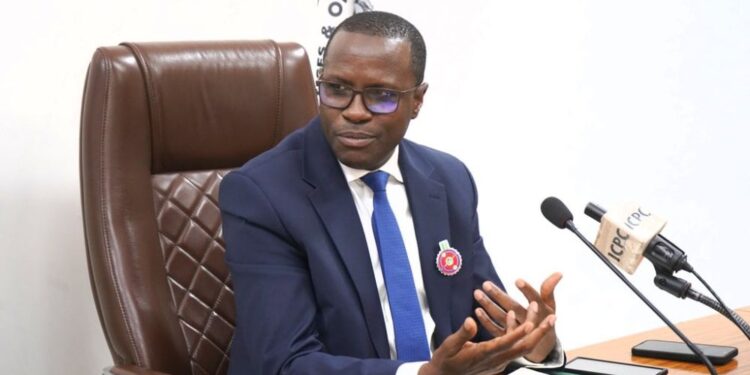By Ebi Kesiena
Nigeria’s fight against corruption has come under renewed scrutiny as the Chairman of the Independent Corrupt Practices and Other Related Offences Commission (ICPC), Dr. Musa Aliyu, has accused some Nigerian banks of aiding illicit financial flows (IFFs) that drain Africa of billions of dollars annually.
Speaking at the 13th Realnews Magazine Anniversary Lecture, Aliyu said the financial sector, long regarded as the backbone of economic stability, has become a channel for the illegal movement of funds that undermine national development.
The lecture, themed “Cybersecurity, Illicit Financial Flows and Achieving Agenda 2063 in Africa,” provided a platform for the ICPC boss to reveal that ongoing investigations show that a number of banks “have been complicit, turning a blind eye to transactions that clearly bear the hallmarks of illicit financial flows.”
According to him, these financial institutions help multinational corporations and local actors hide revenues, manipulate trade invoices, and move illicit proceeds out of Nigeria under the guise of legitimate transactions. He disclosed that one major international firm under ICPC investigation falsified expenditure claims to suppress taxable profits. The funds involved, he noted, are enough “to rehabilitate about 10 teaching hospitals in Nigeria.”
Aliyu explained that several foreign companies under-declare revenue through shadow accounts and unlicensed firms, often with silent approval from insiders in the banking system. As Africa becomes more digitally connected, he warned, the scale and complexity of illicit flows increase—particularly with the rise of cryptocurrency platforms and digital payment systems.
He stressed that cybersecurity has become central to economic stability, as cybercriminals, corrupt officials, traffickers and terrorist networks increasingly rely on digital financial systems. Banks, fintech companies and mobile money operators, he said, “sit at the frontline” of these emerging threats.
Aliyu cited business email compromise schemes, crypto-based laundering, mobile money fraud and ransomware attacks as fast-growing crimes exploiting weak institutional systems.
On the broader impact, he declared that Africa cannot meet the African Union’s Agenda 2063 goals while losing over $80 billion annually to illicit financial flows. These losses, he said, represent “schools unbuilt, hospitals unequipped, roads that never materialise and futures stolen.”
Highlighting the ICPC’s response, Aliyu noted the establishment of a Cybercrime and Digital Forensics Unit, increased collaboration with regulators and expanded international partnerships for asset tracing. But he stressed that law enforcement alone cannot win the battle.
“Compliance cannot be a box-ticking exercise,” he said, urging banks to strengthen KYC procedures, enhance monitoring systems and cooperate fully with anti-corruption agencies.
He concluded with a warning, without decisive action from both government and the private sector, IFFs will continue to cripple Africa’s development. “Every naira lost to illicit financial flows is a direct blow to the Africa we want,” he said.




































